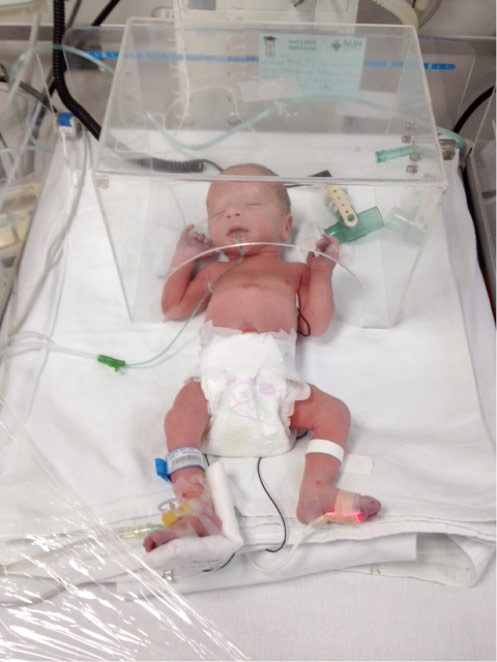Preterm babies may suffer setbacks in auditory brain development, speech

CHAMPAIGN, Ill. — Preterm babies born early in the third trimester of pregnancy are likely to experience delays in the development of the auditory cortex, a brain region essential to hearing and understanding sound, a new study reveals. Such delays are associated with speech and language impairments at age 2, the researchers found.
The findings are reported in eNeuro, a journal of the Society for Neuroscience.
"We have a pretty limited understanding of how the auditory brain develops in preterm infants," said University of Illinois speech and hearing science professor Brian Monson, who led the study. "We know from previous research on full-term newborns that not only are fetuses hearing, but they're also listening and learning."
Ultrasound studies reveal, for example, that, beginning at least as early as 25 weeks into gestation, fetuses will blink or move in response to externally produced sounds, he said. Other research shows that newborns prefer to listen to sounds - such as music or speech - that they were exposed to in the womb over unfamiliar sounds. And electroencephalogram studies of the brains of preterm infants show electrical activity in the auditory cortex in response to sound.
